Birth control has come a long way, baby. Today, millions of women in the United States rely on contraceptives for many reasons, such as regulating periods, preventing pregnancy and improving health conditions.
But the recent decision by the U.S. Supreme Court to overturn the constitutional right to an abortion has sparked discussion about access to birth control and what that might look like in the future.
Right now, birth control is legal in all 50 states, but we wanted to know more about what’s important to women when it comes to contraceptives. And whether the Supreme Court decision had an impact on the decision to take birth control.
In our recent survey of more than 5,000 people between the ages of 18 and 55 who were assigned female at birth, we asked for thoughts on hormonal and non-hormonal birth control — including cost and fears of unwanted pregnancy, among other topics. We also asked more than 500 healthcare professionals (HCPs) who specialize in gynecology to weigh in on similar topics.
We found similarities in the way women and HCPs view birth control awareness and affordability. But we also found some surprising differences.
Here’s more on the key takeaways from our survey about awareness, attitudes and beliefs about birth control.
About half of respondents are worried about unwanted pregnancy to some degree
Even though half our respondents were worried about unwanted pregnancy, 2 out of 5 of those who are worried respondents are not on birth control. Thirty-five percent said they don’t know if they can trust their birth control. Also, it’s not always affordable.
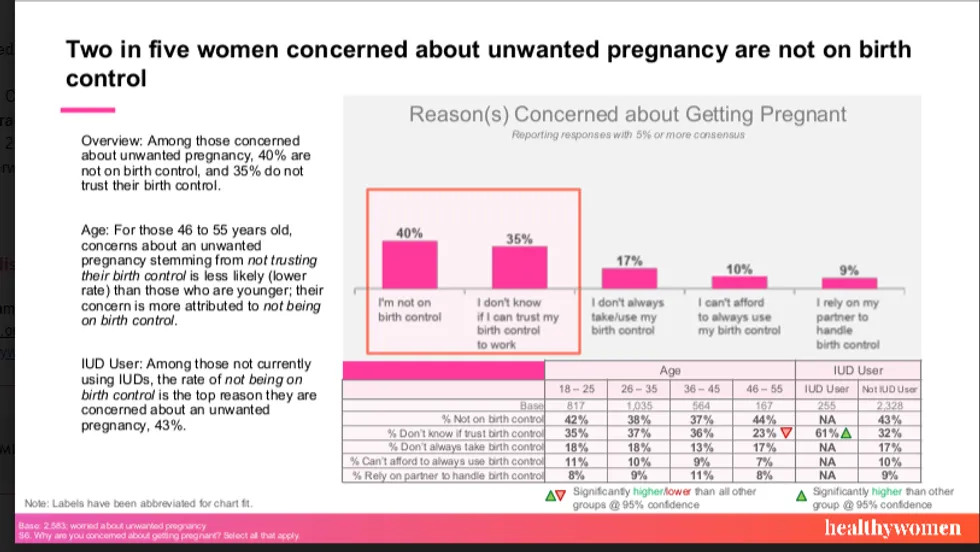
Birth control pills were voted most popular by respondents and the most prescribed/recommended by HCPs …
Most respondents were aware of the pill (87%), thought it was affordable (58%) and were likely to have discussed it with their HCP (58%).
… but not everyone is on the same page
Less than half of respondents said they discussed contraceptives with their HCP at their annual exam, but almost 3 out of 4 (74%) HCPs reported discussing birth control with their patients.
In fact, almost 1 out of 4 respondents ages 46 to 55 said they’ve never had a discussion with an HCP about birth control methods
That’s compared to just 1 out of 10 younger women.
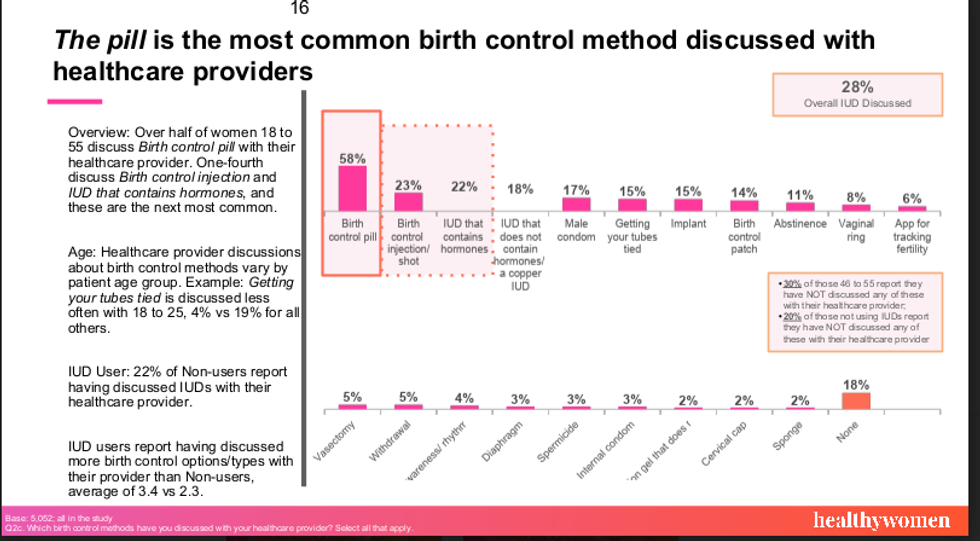
Effectiveness is most important factor regarding birth control for both respondents and HCPs
Also important: ease, physical discomfort, side effects, cost, health benefits such as relief from fibroids.
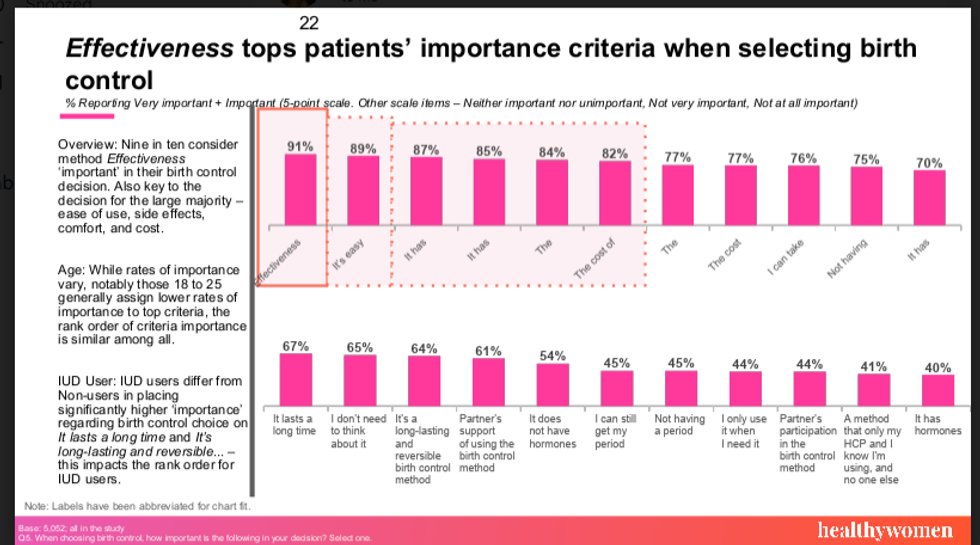
60% of respondents prefer birth control without hormones …
… yet, 59% of HCPs recommend birth control with hormones when patients don’t have a preference.
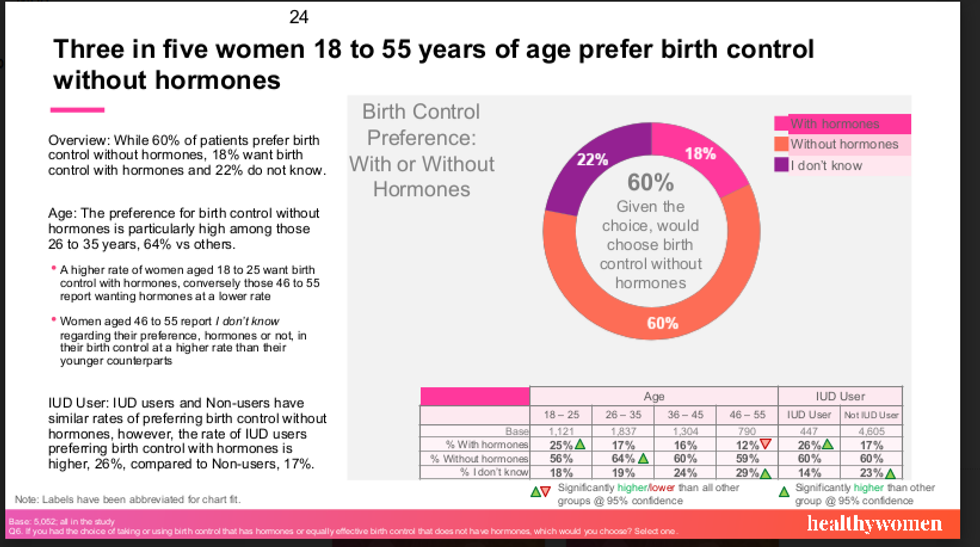
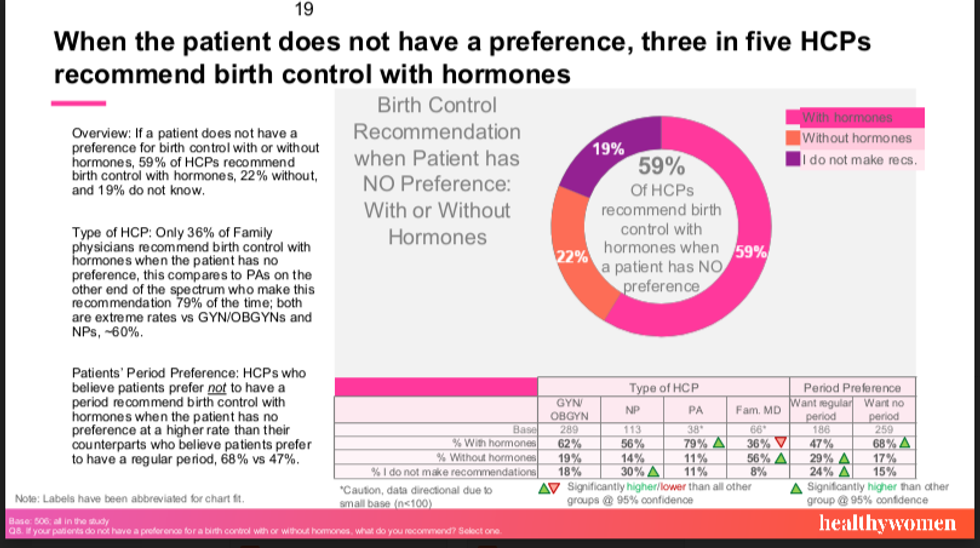
In a surprising twist, almost half of respondents prefer to have a regular period
Not a typo: The majority of these women said a regular period signals that their body is doing what it should be doing. Regular periods also provide peace of mind that they’re not pregnant.
However, more than half (51%) of HCPs said they think their patients would prefer to have no period.
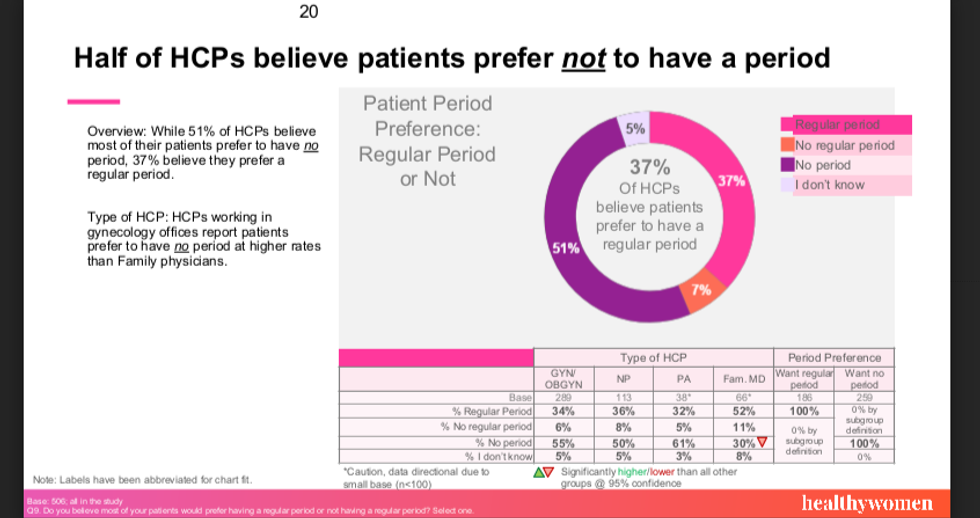
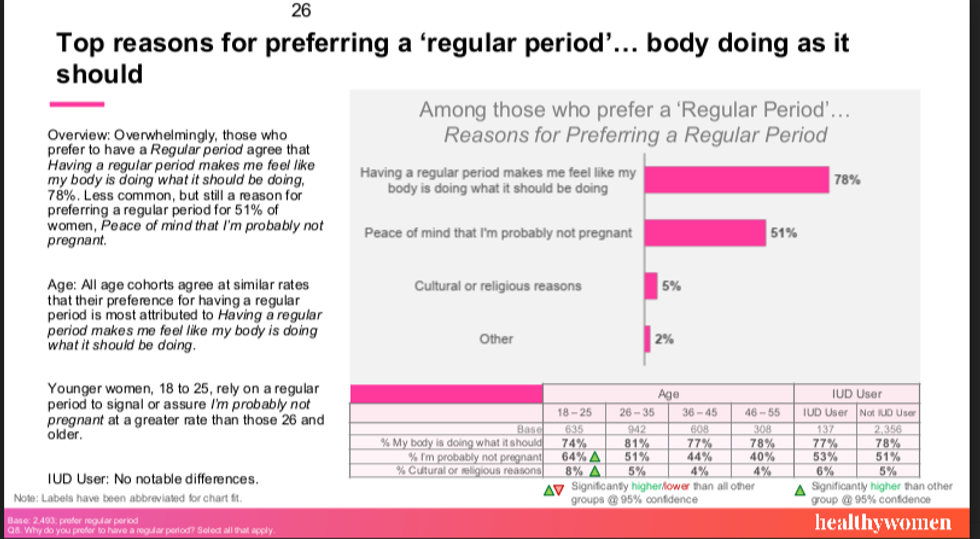
Overall, U.S. Supreme Court decision has not made a difference to the majority of respondents regarding their approach to birth control
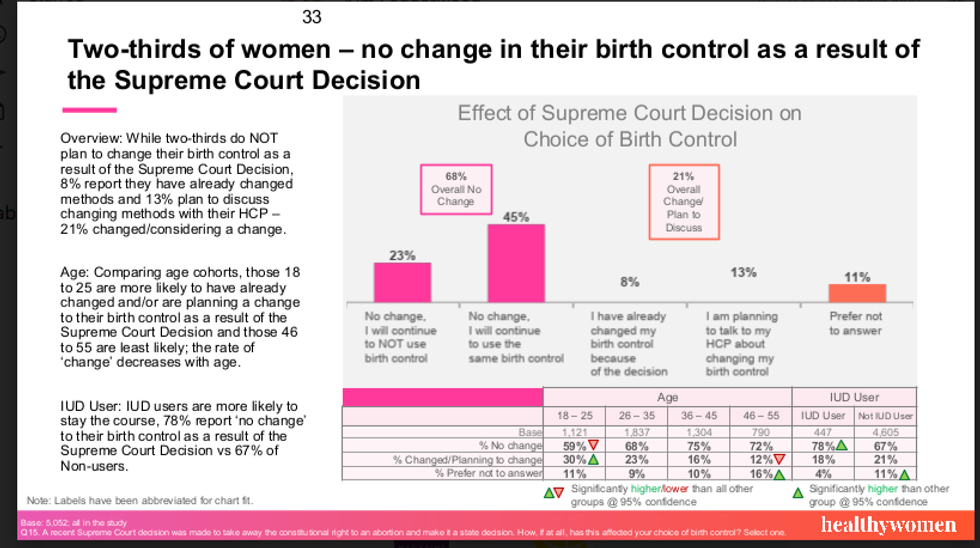
Two-thirds of respondents have not changed their birth control in light of the Supreme Court decision. But a quarter of respondents said they have already changed or plan to change birth control as a result. And almost half (49%) of those who made changes went for a long-lasting or permanent solution (tubal ligation or an IUD or implant).
For HCPs: Almost 1 in 3 (27%) said the decision has changed the way they counsel patients about birth control options
Of those, a majority have counseled or will start counseling more patients to use long-lasting birth control methods, and 6 out of 10 said they have counseled more patients to start using birth control.
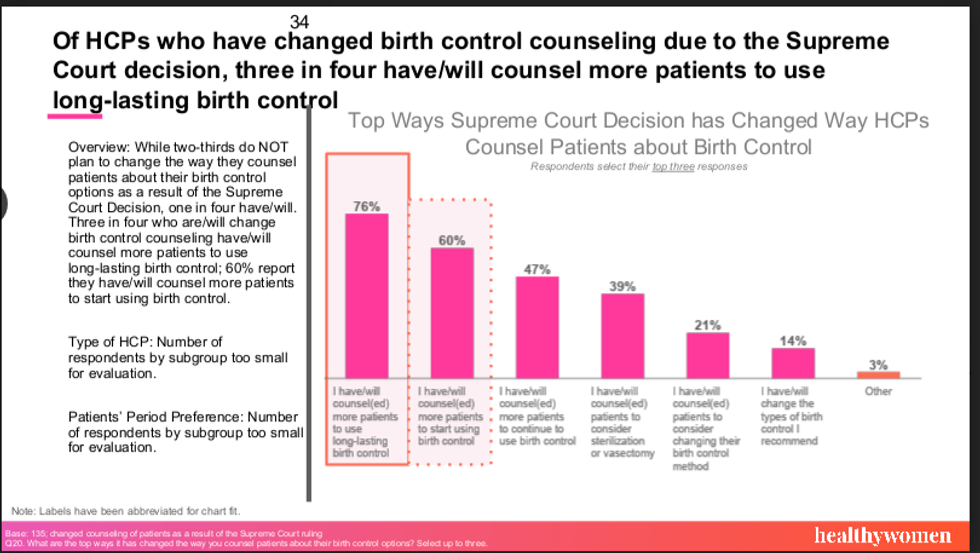
Speaking of long-lasting birth control, 4 out of 5 HCPs prescribe IUDs regularly
82% prescribe and insert IUDs. The most common concern from patients: pain associated with inserting the IUD.
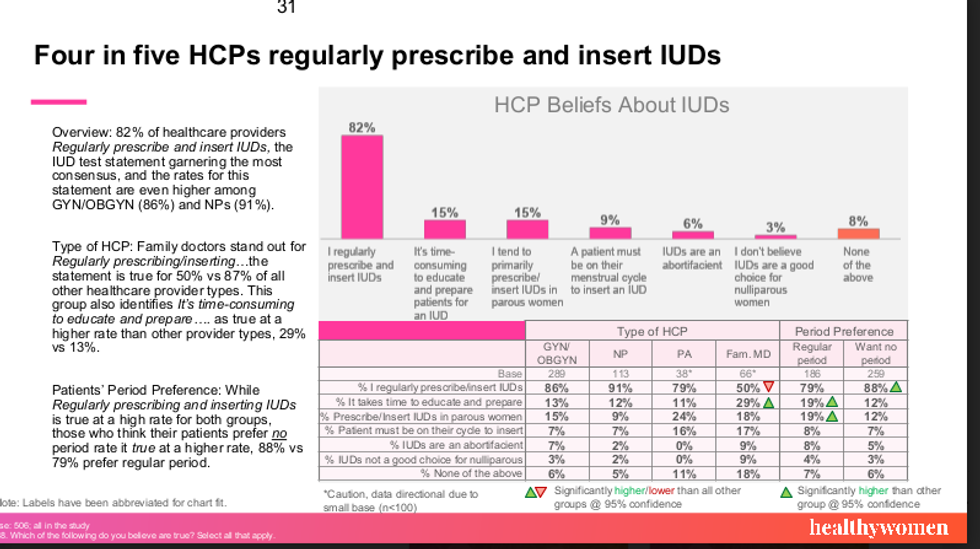
64% of HCPs said their patients understand that, aside from abstinence, sterilization and vasectomy, IUDs are the most effective form of birth control …
… However, only 26% of respondents said they believe IUDs are most effective.
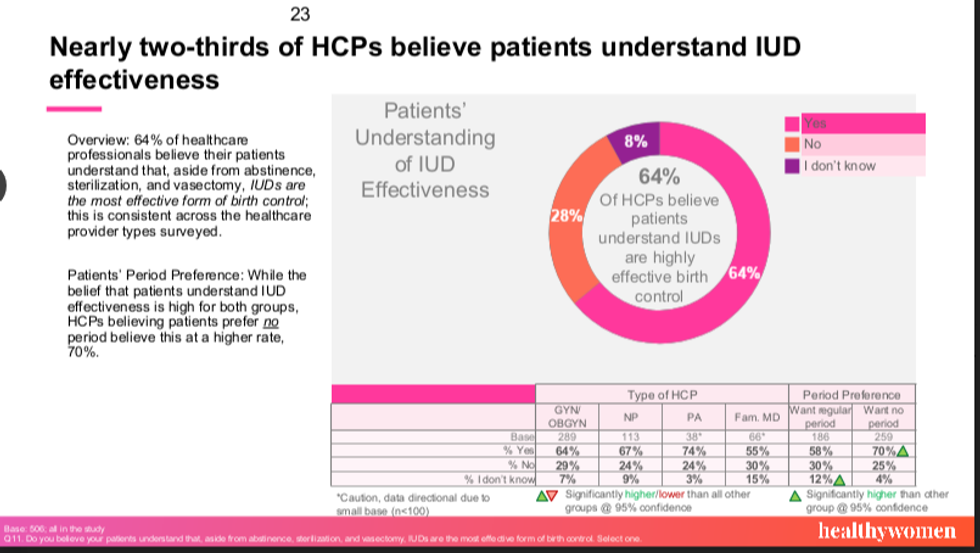
Last, the majority of respondents feel the healthcare industry is understanding their needs and wants when it comes to contraception options
Despite the gaps in communication and understanding between women and HCPs, 57% of respondents feel like the industry is addressing their needs.
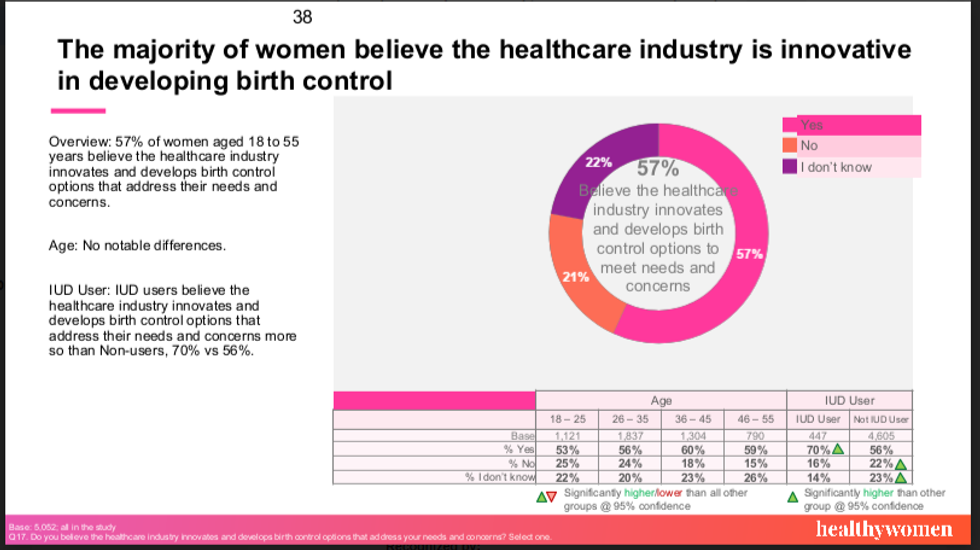
This resource was created with support from Sebela Women’s Health, Inc.

